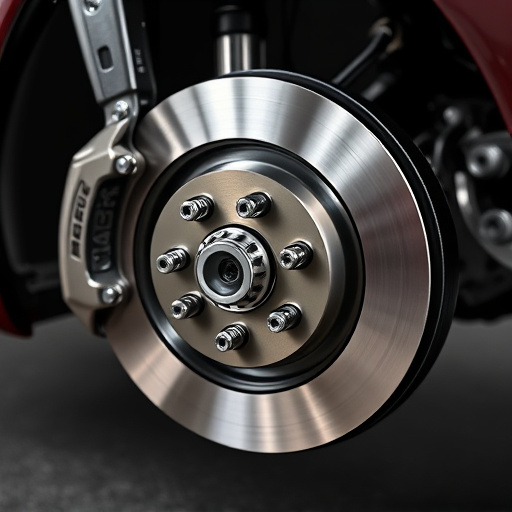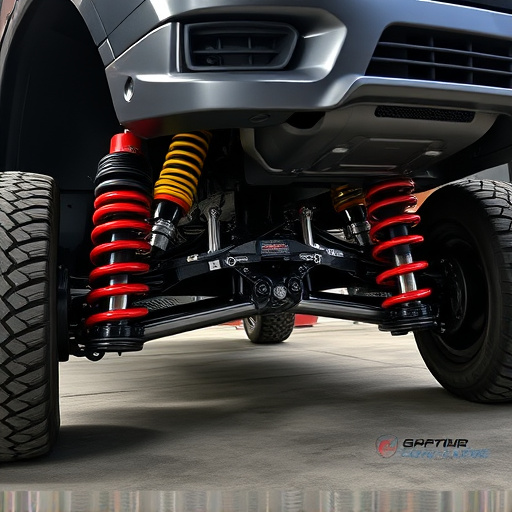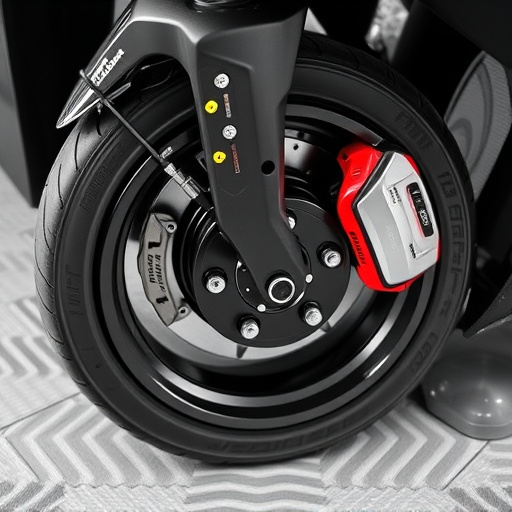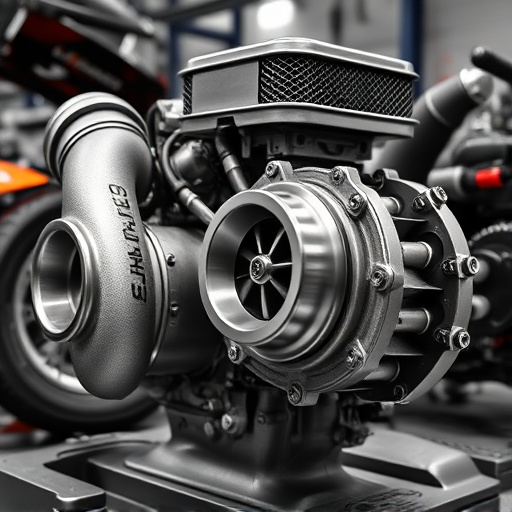Oiled air filters, crucial for engine performance, come in two types: disposable and reusable. While disposables contribute to environmental waste due to their single-use nature, reusable filters offer an eco-friendly solution by extending the lifespan of air intake systems through cleaning and re-oiling. High-performance, durable reusable filters minimize ecological footprints, reduce pollution, and cut down on resource consumption, making them a viable green alternative for vehicle owners seeking better air quality and reduced environmental impact.
“Uncovering the environmental impact of oiled air filters is essential in our quest for a greener future. This article explores the unique properties and widespread usage of reusable oiled filters, delving into their benefits and drawbacks compared to disposables. We dissect the ecological footprint left by traditional filters, highlighting the growing demand for sustainable alternatives. By understanding the environmental implications, we can make informed choices, fostering a greener planet one reusable oiled filter at a time.”
- Understanding Oiled Air Filters and Their Usage
- The Environmental Footprint of Disposable vs Reusable Filters
- Benefits of Adopting Reusable Oiled Filters for a Greener Future
Understanding Oiled Air Filters and Their Usage
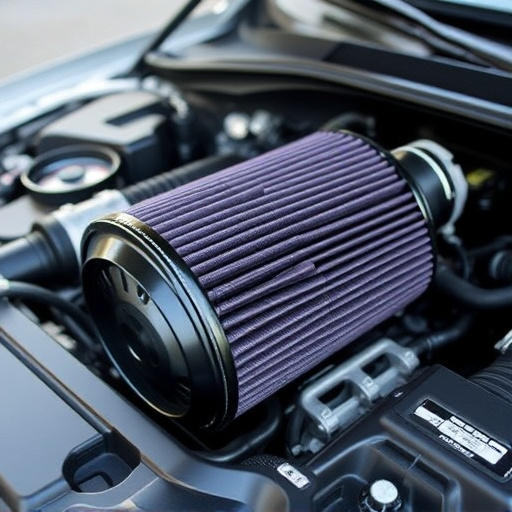
Oiled air filters are specialized high-performance parts designed for use in various automotive and mechanical applications. These filters are engineered to capture fine particles and contaminants from the airflow within an engine or vehicle’s air intake system. The ‘oiling’ process involves coating the filter media with a thin layer of oil, which creates a sticky surface that traps tiny debris like dust, dirt, and smoke particles. This unique design allows for efficient air flow while ensuring that harmful substances do not enter the engine, thereby enhancing its performance and longevity.
Reusable oiled air filters are commonly used in off-road vehicles, racing cars, and motorcycles where high-performance parts demand optimal airflow and protection from harsh environmental conditions. Unlike traditional paper or cotton filters, oiled filters can be cleaned and reused multiple times after thorough washing and re-oiling, making them an eco-friendly alternative to single-use disposables. With proper care, these reusable kits extend the lifespan of air intake systems while reducing waste, contributing to a more sustainable approach in automotive maintenance.
The Environmental Footprint of Disposable vs Reusable Filters
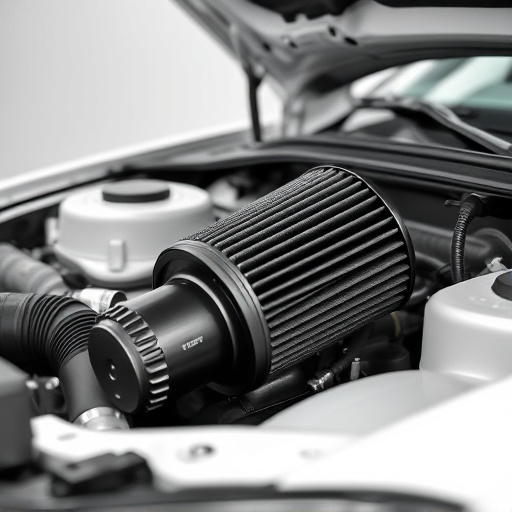
The environmental impact of automotive filters, particularly oiled air filters, is a growing concern as consumers and businesses seek more sustainable solutions. Disposable air filters, commonly used in vehicles with standard exhaust systems, contribute significantly to waste accumulation due to their single-use nature. These filters, often made from synthetic materials, end up in landfills after just a few thousand miles, adding to the ever-growing pile of non-biodegradable waste.
In contrast, reusable oiled air filters present a more environmentally friendly option. While they require regular cleaning and maintenance, their longevity significantly reduces the demand for frequent replacements. High-performance parts designed with durability in mind can extend the life of these filters, making them a viable choice for those looking to minimize their ecological footprint. Reusable air filter kits, tailored for specific vehicle models, offer an easy upgrade from traditional disposable filters, promoting better air quality and reducing waste generated by exhaust systems.
Benefits of Adopting Reusable Oiled Filters for a Greener Future
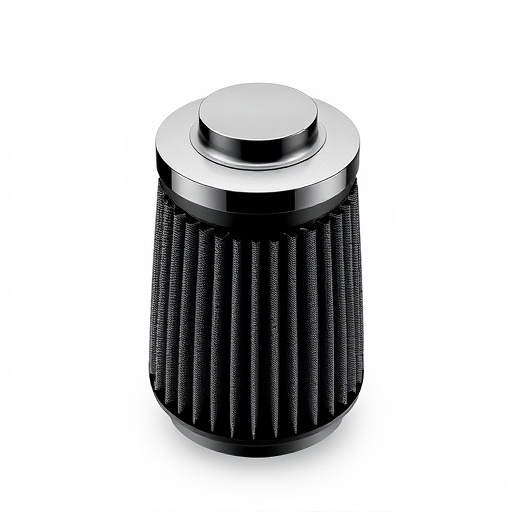
Adopting reusable oiled air filters offers a significant step towards a greener future. These filters, when used responsibly, can substantially reduce environmental pollution and waste generation associated with disposable filters. By utilizing reusable options, individuals contribute to minimizing the carbon footprint of their vehicles, as these filters are designed to capture and retain pollutants from engine exhaust, including harmful substances like particulate matter and nitrogen oxides.
Moreover, oiled air filters promote sustainability by reducing the demand for frequent replacement. This not only cuts down on resource consumption but also minimizes the environmental impact of manufacturing new filters. As a result, reusable filters can be seen as an eco-friendly alternative to conventional ones, offering long-term benefits for both personal vehicle maintenance and the planet’s well-being. Additionally, proper disposal or recycling of used oiled filters ensures that suspension components and exhaust tips remain intact, further decreasing the potential ecological damage caused by inappropriate waste management.
Reusable oiled air filters offer a sustainable and eco-friendly alternative to disposable options. By adopting these filters, individuals can significantly reduce their environmental impact, especially in regions with high pollution levels. The long-lasting nature of reusable filters, combined with proper maintenance, ensures a greener future for both users and the planet. This shift towards reusable products is a vital step in minimizing waste and preserving our natural resources.
